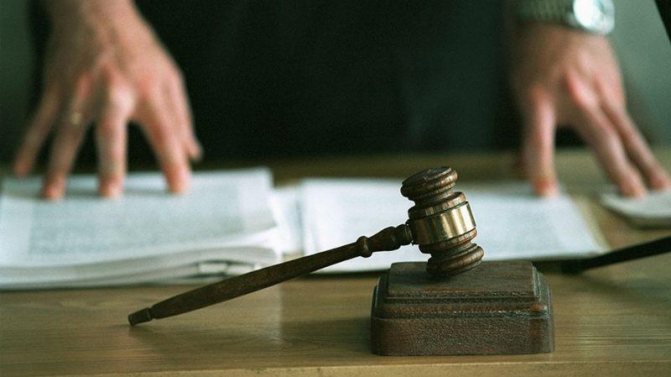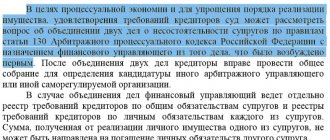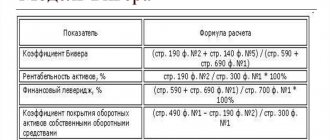The death of a relative is not a joyful event in itself. It becomes sadder if the heirs have to solve financial problems inherited from the deceased. According to the law, it is possible to file bankruptcy for a deceased individual .
Legislative regulation of the bankruptcy procedure in the event of the death of the debtor is reflected in Federal Law No. 127. To declare a deceased person bankrupt, you need to understand the specifics of the process. If a mistake is made at any stage, the case will be refused.
Legislation and its regulations
Bankruptcy after the death of a citizen is regulated by Federal Law No. 127 , and more specifically by its Article 223.1. Various changes were made there quite often.
In principle, such a procedure only recently appeared in Russia.
The Civil Code of the Russian Federation contains a clause stating that the death of a citizen is a fact that terminates all those legal relations in which he was a participant before its occurrence, according to Articles 17, 418.
How to receive your wages if a company goes bankrupt? This is discussed in this article.
Thus, he is freed from all rights and obligations that he previously had. Then it is not clear how one can go bankrupt if he is supposedly exempt from responsibility for all the offenses committed? This indicates a discrepancy between the adopted Federal Law and the existing legislation of the Russian Federation.
According to current legislation, even death does not free a citizen from his debts.
Articles 1110 and 1112 of the Civil Code of the Russian Federation also establish the right of heirs to all property, property and some non-property rights. They are transmitted as something integral and at one moment.
According to clause 7 of Article 223.1 of the Bankruptcy Law, the estate of the deceased is included in the bankruptcy estate, which means its virtual absence for the heirs themselves.
What documents will be required?
If documents are submitted by heirs:
- application to court;
- a document confirming the right to inherited property. For example, a certificate of the right to inheritance by will or by law, a judicial act recognizing the right to inheritance;
- certificate from a notary;
- a copy of the paperwork from the notary;
- death certificate;
- a certificate from a notary with a list of property included in the inheritance mass;
- other mandatory documents specified in Article 213.4 of Federal Law No. 127.
If the documents are submitted by the creditor, then it is enough for him to indicate in the application the fact of the death of the debtor. In this case, the obligation to petition the court to apply a special bankruptcy procedure described in Article 223.1 of Federal Law No. 127 and to request a copy of the inheritance file falls on the arbitration manager.
Who can initiate bankruptcy proceedings
Certain persons have the right to initiate such a procedure:
- bankruptcy creditor;
- heirs of a deceased citizen who have this right;
- an authorized tax authority or other government agency to which this citizen owes a debt.
Moreover, the entire procedure begins after the death of the person.

Only certain persons and structures can initiate bankruptcy of a deceased person.
The heirs of a given citizen can begin this procedure only after the expiration of the period established by the law of the Russian Federation for entering into inheritance rights. The court invites them to participate in financial insolvency proceedings.
They are included in the list of interested parties who are directly involved in the distribution of the property of the deceased. To confirm rights, heirs must provide notarized documents confirming their existence.
Features of bankruptcy of guarantors of individuals are described here.
Also, according to Article 1175 of the Civil Code of the Russian Federation, heirs are liable for the debts of a citizen who has already died, only in the amount established by the value of the inherited property. That is, in practice, this means that creditors cannot ask them for more than the deceased had.
Moreover, if the sale of all his property did not have enough funds to cover the debts, then creditors may demand payment of the balance, but not exceeding the real value of all the objects that the deceased owned.
If the arbitration court has made a positive decision on the bankruptcy petition, then the procedure for the sale of property begins.
Bankruptcy of a deceased citizen - pros and cons for creditors

The introduction of the institution of bankruptcy of a deceased citizen into Russian legislation has become an initiative beneficial for creditors. How does the new mechanism differ from that long established by Article 1175 of the Civil Code? Which opportunities have opened up and which ones have been lost?
Article 1175 of the Civil Code of the Russian Federation states that the heirs who accepted the inheritance are jointly liable for the debts of the testator (Article 323), and each of the heirs is liable to the extent of the value of the inherited property transferred to him.
The main advantage of the bankruptcy (insolvency) procedure for a deceased citizen is that the creditors of the heirs, obligations to whom arose not in connection with the inheritance, do not participate in the bankruptcy case of the deceased person (see paragraph 48 of the Resolution of the Plenum of the Supreme Court of the Russian Federation of October 13, 2020 No. 45 “On some issues related to the implementation of procedures applied in cases of insolvency (bankruptcy) of citizens”).
The main advantage of the claim procedure for the creditor is the ability to satisfy claims from the property of the heirs if the latter “stole” the inherited property.
Among the advantages of bankruptcy procedure
over the usual claim in accordance with Art. 1175 of the Civil Code of the Russian Federation can be distinguished:
— the creditor nominates a financial manager, who will most likely be approved by the court;
This is interesting: Underweight in the army table 2020
- the financial manager will actually be the person selling the property of the deceased citizen (if the creditor goes by filing a statement of claim, such a person will be the bailiff);
— the court immediately appoints a procedure for the sale of property (bypassing restructuring);
— the opportunity opens up to challenge transactions (as part of a bankruptcy challenge) made by the debtor before death and which negatively affected the inheritance;
- the creditor does not need to wait 6 months before accepting the inheritance (as usual, the court will suspend the case until the expiration of the period established by Article 1154 of the Civil Code of the Russian Federation);
— in the event of bankruptcy of one of the heirs, the creditor will not need to join the register and hope to receive satisfaction of claims from the heir’s bankruptcy estate;
— the law does not establish a direct limitation on the period for filing a bankruptcy petition for a deceased citizen (while the statute of limitations applies as usual).
Among the advantages of the usual order (Article 1175 of the Civil Code of the Russian Federation)
can be distinguished:
— on average, the period for consideration of a claim is shorter than the period for conducting bankruptcy proceedings for an individual;
- in a lawsuit, the amount of debt is recovered from the heirs, which is limited by the value of the inherited property, but can be satisfied both from the latter and from the personal property of the heirs;
— the bankruptcy procedure will require additional financing (remuneration to the financial manager, costs of bidding, publications, etc.), so saving on state duty here is very illusory;
— in a bankruptcy procedure, you may encounter demands from other creditors (including those with questionable primary documents), which in turn will further delay the insolvency procedure.
Do I need to seek the help of lawyers?
One of the most important roles in the bankruptcy procedure is played by a notary. Until the period established by law for entering into inheritance rights has ended, it is the notary who deals with the entire process of bankruptcy and inheritance. His responsibilities include:
- filing an application to initiate bankruptcy proceedings in court;
- filing an application for the sale of property;
- opening of an inheritance case on debt restructuring;
- submission of all complete information on all inherited property to the financial manager.
Bankruptcy of a deceased individual
Completion of the bankruptcy procedure of a deceased citizen is necessary, first of all, for his creditors who did not manage to receive payment for their existing obligations. Despite the fact that Art. 1175 of the Civil Code of the Russian Federation on the succession of heirs protects the rights of creditors; the legislator decided to provide the latter with a choice of 1 of 2 options for collecting debts after the death of the debtor:
- Creditors wait until the heirs receive the inheritance and pay them off within the limits of the inheritance mass transferred to them.
- Creditors file bankruptcy proceedings against the deceased person.
What is common in both cases is that debts can only be recovered to the extent of the value of the inherited property.
The advantages of the bankruptcy procedure over the general procedure for collecting debts from heirs are:
- the opportunity to submit an application without waiting for the expiration of 6 months, which are necessary to accept the inheritance;
- absence of a restructuring stage, since the process begins with the sale of the property of the deceased;
- fixed, i.e., independent of the value of property or the amount of debt, the amount of state duty (300 rubles for citizens, 6 thousand rubles for organizations);
- lack of deadlines for filing a bankruptcy claim after the death of a citizen, impossibility of applying the consequences of missing the statute of limitations.
In addition, if the insolvency procedure was started before the death of the citizen, then it continues.
Who is the defendant
The defendants are the heirs.
But it is worth keeping in mind that they do not spend their own funds in the process. That is, they are responsible to the creditors of the bankrupt exclusively with the funds of the deceased, losing nothing except their own time and nerves - after all, proceedings can last for years. The question is - why do the defendants need all this? Why would they carry a debt burden that they inherited from a bankrupt relative?
If all property and securities that were inherited are subject to sale within the framework of bankruptcy proceedings, then it makes no sense to get involved in such a matter. After the death of a citizen, his property, rights and obligations are transferred to his heirs exclusively on a voluntary basis. No one has the right to impose all this on them. If you think that you will get nothing but a headache, feel free to refuse the role of heir, relieving yourself of the obligation to act as a defendant.
This is interesting: What is explication of premises
Powers of a notary when considering a bankruptcy case after death
If in a bankruptcy case of a living citizen the main role is assigned to the bankruptcy trustee, then in the event of the death of a bankrupt or a contender for this title, all the reins are transferred to the hands of a notary.
It contains the following functions:
- Provide a copy of the inheritance file to the court so that during the bankruptcy hearing the heirs of the deceased are recognized as persons entitled to take part in the case.
- Until the heirs enter into the inheritance (which is possible only after the expiration of the period specified in Russian legislation), the notary participates in the case of declaring a citizen bankrupt posthumously.
- The notary prepares and submits to the court a petition for the sale of bankruptcy property.
- Exchanges information about the deceased's property with the financial manager.
The financial manager notifies the notary about the death of a citizen within five days from the moment of its official recognition.
Information about bankruptcy property that was not sold is also transferred to the notary.
Sequence of requirements satisfaction
The law talks about the procedure for satisfying the claims of creditors and those persons to whom the deceased bankrupt owes money.
Thus, notary costs, current expenses for the burial of the deceased, and the costs of protecting the inheritance are paid out of turn.
Further, if the person’s insolvency has been recognized, the following requirements are satisfied:
- For payment of alimony,
- For legal expenses in a bankruptcy case of an individual,
- To pay for the work of the financial manager and the persons hired by him to ensure his duties.
- Benefits and salaries for employees who worked for the deceased.
- Utility bills.
- Other current payments.
- Payments to citizens whose life or health the bankrupt caused harm.
Those creditors who owned the citizen’s collateral property are allocated 80% of its value following the sale. Another 10% goes to repay the citizen’s debts to other creditors if no more of his property could be sold or the proceeds were not enough to cover the debt. The remaining 10% goes towards paying legal fees and paying the financial manager.
If there is not enough property to satisfy any requirements, they are written off and considered repaid.
Stages of the procedure
It will vary depending on the circumstances of the citizen’s death. If he died already during the bankruptcy proceedings, then the procedure will be slightly different than if he died and after that a case was started about his financial insolvency.
Within five days from the date of death of an individual, the manager files a claim on this matter , after which a notary is selected who carries out his activities at the place where the inheritance was opened.
Next, questions about debt restructuring or the sale of the debtor’s property are considered. If the first option is not possible, then the second is assigned. Therefore, the timing of its implementation depends on the circumstances of a particular case.

This type of bankruptcy has its own characteristics.
They sell all real estate and land plots. The following types of property are not included in the bankruptcy estate:
- residential properties where relatives of the debtor live;
- property of heirs;
- apartments with shared participation of other persons or family members of the deceased citizen.
There is an important nuance here regarding what kind of property can be included in the bankruptcy estate. The heirs should not have ownership rights to it, or they themselves have abandoned them. Only then can such objects be sold to cover the debts of the deceased person.
Article 213.27 of the Federal Law of June 26, 2020 determines the sequence of satisfying creditors’ requests. Primary payments are made as follows:
- payments and those required for the funeral of a citizen;
- payment for notary and financial manager services;
- payment of all costs of legal proceedings;
- registration of payments for services of all persons who participated in the bankruptcy case;
- severance benefits for employees;
- payment of all utilities and debts on them;
- contributions for major repairs of the building.
When all settlements with creditors have been completed, the fulfillment of the creditors' demands by the responsible persons ceases. If they do not affect the current bankruptcy case, then the creditors of the heirs do not participate in this case.
Another important nuance: if all the property sold according to its market value was not enough to cover all debts, then creditors do not have the right to demand the remainder from the heirs. Then the debt will be considered repaid and will not be subject to legal proceedings.
When mortgage debts are owed by deceased citizens, they are not always satisfied in favor of the interested parties. The court may decide that primary claims should be sent to insurance companies, where, under the terms of mortgage agreements, the life of a given citizen can be insured.

You should consult with an attorney before initiating bankruptcy proceedings for a deceased person. Each individual situation has its own nuances.
Other cases may occur, so you need to take into account local specifics and the fact that different courts may understand the same letter of the law differently.
For example, there are cases when the heirs have already entered into an inheritance and have even managed to receive it in full. After some time, creditors file a bankruptcy petition for the deceased citizen. The court accepts it, but since the inheritance has already been transferred to the legal successors, the implementation of the process itself becomes impossible.
Creditors cannot demand cancellation of the inheritance, but they can appeal to the heirs to satisfy their claims. If the claim period has not expired, then they can do this. Otherwise, this will not be possible.
Who is the defendant
Expert opinion
Sokolov Alexander Konstantinovich
Legal practitioner with 8 years of experience. Specializes in criminal law. Extensive experience in document examination.
In the group of cases considered in accordance with Art. 223.1 of Law No. 127-FZ, an application to the court is presented to a deceased individual. The lender's claims can only be satisfied from the inheritance estate.
In some cases, creditors do not know who to choose as a defendant, especially in situations where the debt itself began to form after the death of the citizen. Experts adhere to the following point of view: if the deceased regularly repaid the borrowed funds during his lifetime, but did not have time to repay the entire amount of the obligation due to death, then, although the debt actually passes to the heir, the deceased still remains the defendant in the case.
According to Art. 127-FZ, the child, spouse, parents and other heirs of the deceased do not actually become debtors. They are involved in the case only as interested parties.
However, in judicial practice there are situations when creditors can bankrupt the heir himself. From the point of view of the law, this is possible, since the property of the testator becomes part of the property of his surviving relative.
But there are several nuances in this matter. Firstly, it will be considered according to a different procedure, since the defendant in this case is alive.
Secondly, the creditor will first need to prove the citizen’s insolvency. Such situations arise in practice when the inheritance is spent and the lender cannot foreclose on the property of the deceased.
Conditions for bankruptcy of a citizen after his death
The conditions for bankruptcy of a citizen after his death are defined in Art. 223.1 of the Law “On Insolvency (Bankruptcy)” dated October 26, 2002 No. 127-FZ.
To declare a citizen, including a deceased person, bankrupt, the following conditions must be met:
- Availability of debt in the amount of 500 thousand rubles. and more. In this case, the debt can be cumulative, that is, it does not matter how many creditors the debtor has - the main thing is that the total amount of debt exceeds the specified threshold.
- No payments to creditors for more than 3 months.
- Absence of a procedure for declaring bankruptcy within 5 years preceding the day the creditors went to court.
- No expunged/unexpunged convictions for crimes committed in the economic sphere.
More information about the bankruptcy procedure for individuals can be found in the article “Bankruptcy of individuals: how to declare yourself bankrupt.”










